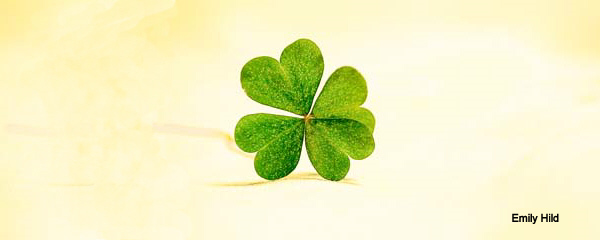
photo by Emily Hild
by Mary O’Donnell
When you’ve been writing a long time – I’ve been publishing since the mid-nineteen Eighties – there comes a point when you wonder about the value of entering literary competitions. After all, most of the time it’s like a lottery, and as this year’s adjudicator Simon Mawr remarked in his summary of the winning entries to the Bantry-based competition, there wasn’t much to choose between the shortlistees. So, when you pop a story out in the post or on-line, you know anything can happen. Mostly it’s silence. Occasionally, there’s white smoke. In 2000 I was awarded second place in the V.S.Pritchett competition in London. I immediately went off after the event and spent the prize-money on a great pair of boots in FCUK. But coming in there meant a lot to me. For one thing, it was a major prize outside my home patch, and for another V.S.Pritchett is one of those writers whose work I always admired.
But time passes. Some writers say an established writer shouldn’t enter lit. comps after a certain time, that it’s not quite the thing, that it looks a little bit grasping. Really? Where is it written that writers should not put their work out in the general ether? I’ve never heard a Booker nominee shrugging off the possibility of an award. With that in mind, I popped off my short story “The Space between Louis and Me” to the Fish people last November, and then more or less forgot about it. I had also been inspired to enter the competition because as it happened two of my poet friends here in Ireland had won the Poetry competition in recent years, Catherine Phil MacCarthy (2010) and Jean O’Brien (2008). That made me think that all things were possible.
But when Clem Cairns, the founder and administrator of this competition, emailed me to say I was on the shortlist, I was absolutely thrilled. And then I thought no more about it that week because I was simply too busy. But then the NEXT email arrived and got straight to the point, saying that I was overall winner from a field of 1,900 entrants, and it was one of those joy unbounded moments, with me hollering and yowling with delight in my study, causing husband and daughter to come running in alarm.
I believed my short story was a good one, ever before I entered it, and had not sent it out for publication because I knew I might need it someday. In fact, it had been entered in the Davy Byrne Short Story Competition the previous year. This was judged by Richard Ford and I came in somewhere in the final thirty entrants, from a fairly large field. I was pleased, and it confirmed the story probably held together well.
The thing about big literary competitions such as Fish is that they keep the interest in the short story as a form continually simmering. It may mean a moment of public honour for the winner(s), and a nice cheque too, but I genuinely believe that the short story as a form is one of those endlessly fascinating and complex arts which could easily fade from reader-consumer consciousness if it is not nurtured by competitions and blogs. Publishers, by and large, remain adamantly interested in the novel, which does not augur well for shorter fiction.
Anyway, I have the added pleasure of the story being published in July in the Fish Anthology, along with all the other fiction and poetry winners. Once it’s published, it’s no longer ‘mine’, but it’s ‘live’ and on-air, and nothing pleases me more as a writer than seeing my work in print and being read.
I think attending the Frank O’Connor Short Story Festival in Cork a few years ago, during which I met Alison MacLeod and several other great writers, really encouraged me in the form. The Irish short story, as a genre, has been pushing for change in recent decades. Often, it has been influenced by the successful RTE Short Story Competition, but entry requirements for radio meant that these stories can be no longer than 1,900 words in length. That’s all very well, and an excellent way of crafting a piece down to its most essential, but in the end we run the risk of being a nation of bite-sized short story writers. However, the presence of the lit mag The Stinging Fly is a bright light in our community, because it encourages stories which are longer.
I’m looking forward to July in Bantry and to meeting the other Fish winners – it should be fun, in one of the country’s loveliest towns for a few days devoted to literature, music and probably very good company!


Mary – Many thanks for posting your thoughts here. This struck me: “nothing pleases me more as a writer than seeing my work in print and being read”; I couldn’t agree more. I think competitions are a great impetus, setting a deadline to aim for a story’s completion and offering a potential audience for a story we believe in.
Well done indeed and thanks for posting such a personal response to how it feels both to enter and to win. The response of silence to stories of our heart which we sweat over and then send out to make their way in the world, is familiar to all of us, as is the lack of interest in short fiction by publishers. I agree that you shouldn’t necessarily ‘hold off’ competitions when you’re published – god knows it’s hard enough for all of us, though JK Rowling might not be playing the game were she to enter. It’s good to see the rewards of perseverance; something I feel in my gut will come my way. In time;
Heh-heh. JK Rowling in a competition – now that IS a funny idea!! I remember some guy two decades ago telling me that competitions didn’t count much. Hmmmm. I’m not so sure about that myself. It’s how many women, in particular, have come to prominence and survival as writers. Good luck!
Congratulations! And thanks for being candid. It’s really interesting to read about your experiences and particularly about the history of a story that finally finds its niche. I sense that you’re a little sad to let it go. Perhaps ‘finally’ is not the right word…
Hello Amanda, and thank you for responding. I wasn’t sad to let the story go, because it’s still alive for me anytime I see it in print, or if somebody gets a kick out of reading it. I’m in the middle of a long first draft of a long short story (i.e. 14,000 plus words) which isn’t quite complete yet. It will take ages to edit it down properly, but I’m happy to take my time with it.
What are you writing? Where are you based?
Cheers,
Mary